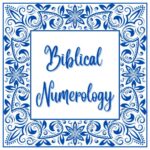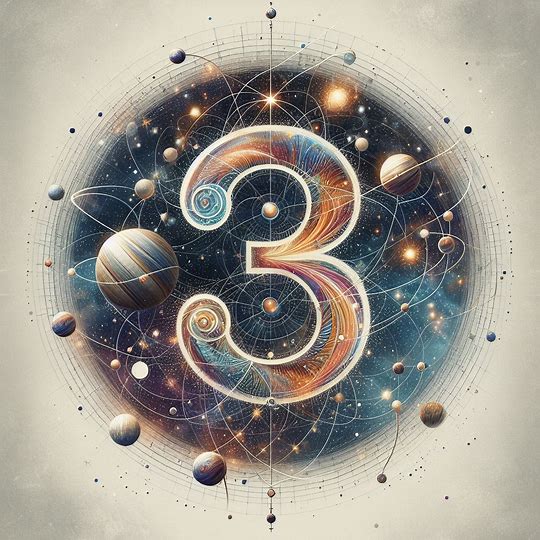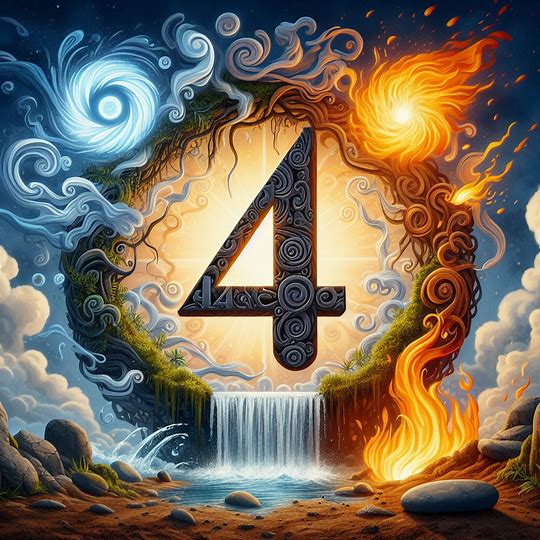The number 9 holds a special significance that is mentioned repeatedly across various cultures, belief systems, and fields of study. From ancient philosophies to modern mathematics, the number 9 seems to carry a unique meaning and power that sets it apart from other digits. It emerges time and again in spiritual traditions, folklore, music, literature and more.
In numerology, the study of the hidden meanings of numbers, 9 is considered a highly auspicious and sacred number. Through exploring the many places where the importance of 9 is highlighted, we can gain insight into the special qualities of this mysterious number and the significance it has had for people across the ages.
Key takeaways:
- In the Bible, number 9 is interpreted as representing completeness, finality, judgment, and divine wrath in certain instances.
- The Hebrew letter “Tet” (ט), which represents 9, symbolizes goodness, purity, hidden blessings, and new beginnings in Jewish tradition.
- The number 9 is significant in Chinese, Mayan, and Indian cultures, associated with longevity, mathematical systems, and divine feminine energy, respectively.
- Frequently seeing the number 9 may signify divine completeness, the end of a season, a call to repentance, or an invitation to reflect on spiritual growth.
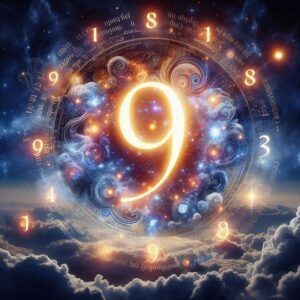
What is the Significance of Number 9 in the Bible?
In the Bible, the number 9 appears in various contexts and carries symbolic meaning in certain instances. While it may not have the same explicitly defined significance as some other numbers like 3, 7, or 12, the number 9 is still interpreted in several ways within biblical symbolism.
- Completeness and Finality: In some interpretations, the number 9 is seen as representing completeness or finality, similar to its significance in numerology. For example, in the story of Noah’s Ark, the floodwaters lasted for 40 days and 40 nights, after which the ark came to rest on the mountains of Ararat on the 17th day of the 7th month (Genesis 8:4). Adding these numbers together (40 + 40 + 7) equals 87, and reducing 87 to a single digit yields 9 (8 + 7 = 15, 1 + 5 = 6). This completion of the flood narrative with the landing of the ark symbolizes the end of one phase and the beginning of a new era.
- Judgment and Divine Wrath: In some interpretations, the number 9 is associated with judgment and divine wrath. For instance, in the book of Revelation, there are references to a series of plagues and judgments, including the pouring out of the seven bowls of God’s wrath upon the earth (Revelation 16). The number 9 could be seen as symbolizing the culmination of God’s judgment upon the wicked and the completion of His divine plan.
- Gifts of the Spirit: In Christian theology, there are references to the nine fruits of the Holy Spirit listed in Galatians 5:22-23: love, joy, peace, patience, kindness, goodness, faithfulness, gentleness, and self-control. Some interpret the number 9 in this context as representing the fullness of spiritual gifts bestowed upon believers by the Holy Spirit, emphasizing the completeness of God’s grace and blessings.
- Biblical Numerology: In biblical numerology, the number 9 is sometimes associated with the idea of finality or judgment, as mentioned earlier. Additionally, some biblical scholars suggest that the number 9 may have significance in relation to other numbers or patterns found throughout scripture, though interpretations can vary widely.
While the significance of the number 9 in the Bible may not be as explicitly defined as some other numbers, it still carries symbolic meaning in various contexts, representing themes of completion, finality, judgment, and spiritual gifts. As with any symbolic interpretation, it’s essential to consider the broader context of the biblical narrative and the interpretations of scholars and theologians.
What is the Number 9 in Hebrew?
The number 9 is represented by the letter “Tet” (ט) in the Hebrew alphabet. The letter “Tet” holds a special significance in the Hebrew language and Jewish tradition. Here are 5 key points about its meaning:
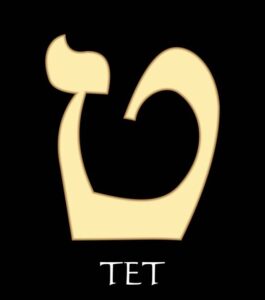
- Goodness: “Tet” symbolizes goodness and completeness, as it is the first letter of the word “Tov” (טוב), which means “good.” In the creation story of Genesis, God saw that His work was good (Genesis 1:4, 10, 12, 18, 21, 25, 31), and the letter “Tet” is associated with this divine goodness.
- Purity and Holiness: In Jewish mysticism, “Tet” is believed to represent the pure and holy aspects of God’s creation. It signifies the untainted goodness that existed before the introduction of sin into the world.
- Hidden Goodness: Some Jewish scholars interpret “Tet” as a symbol of hidden goodness, suggesting that even in times of hardship or challenges, there is an underlying goodness that may not be immediately apparent.
- Pregnancy and New Beginnings: In some Jewish traditions, the letter “Tet” is associated with pregnancy and the formation of new life, as it is the first letter of the word “Tovala” (טובלה), which means “immersed” or “purified.” This connection to new beginnings and purification further emphasizes the idea of goodness and potential associated with the number 9.
- Yesod and the Tree of Life: In Kabbalah, the Jewish mystical tradition, “Tet” is associated with the ninth of the ten divine emanations (sefirot) on the Tree of Life, called “Yesod” (יסוד), which means “foundation.” Yesod represents the channel through which divine energy flows into the physical world, further connecting the number 9 with the concept of goodness and divine influence.
The number 9 and its corresponding Hebrew letter “Tet” hold deep spiritual and symbolic meanings within Jewish tradition, representing goodness, purity, hidden blessings, new beginnings, and the divine foundation of creation. These interpretations add richness and depth to the understanding of the number 9 within the context of Hebrew numerology and mysticism.
Bible Verse Talks About the Number 9
While there is no specific Bible verse that directly discusses the number 9, there are several instances where the number 9 appears in the biblical narrative. Here are five verses that mention the number 9 and their possible interpretations:
Luke 17:17 - "Jesus asked, 'Were not all ten cleansed? Where are the other nine?'"
In this verse, Jesus heals ten lepers, but only one returns to give thanks. The number 9 here represents the ungrateful majority who failed to acknowledge the miracle and express gratitude. This story emphasizes the importance of thankfulness and recognizing God’s blessings in our lives.
Galatians 5:22-23 - "But the fruit of the Spirit is love, joy, peace, forbearance, kindness, goodness, faithfulness, gentleness and self-control. Against such things there is no law."
While not explicitly mentioning the number 9, this passage lists nine attributes known as the fruits of the Spirit. These qualities are seen as evidence of the Holy Spirit’s work in a believer’s life. The number 9 here could symbolize the completeness and fullness of the spiritual fruits that God desires to cultivate in His people.

Acts 3:1 - "One day Peter and John were going up to the temple at the time of prayer—at three in the afternoon."
In this verse, the ninth hour (3 PM) is mentioned as the time of prayer. In Jewish tradition, the ninth hour was a significant time for prayer and sacrifice. This verse highlights the importance of setting aside dedicated time for communion with God and aligning our daily routines with spiritual practices.
Matthew 27:45-46 - "From noon until three in the afternoon darkness came over all the land. About three in the afternoon Jesus cried out in a loud voice, 'Eli, Eli, lema sabachthani?' (which means 'My God, my God, why have you forsaken me?')."
Here, the ninth hour (3 PM) is associated with Jesus’ crucifixion and the moment he cried out to God. The number 9 in this context could symbolize the completeness of Jesus’ suffering and the ultimate sacrifice he made for humanity’s salvation.
1 Chronicles 25:31 - "The ninth to Mattaniah, his sons, and his relatives, twelve."
In this passage, the Levites are divided into 24 groups for temple service, and the ninth group is assigned to Mattaniah and his family. While the specific significance of the number 9 here is unclear, it is part of a larger organizational structure for worship and service in the temple, emphasizing the importance of order and dedication in spiritual matters.
The Cultural Significance of Number 9
The number 9 holds significance in various cultures around the world, often carrying symbolic meanings that transcend geographical boundaries.
Chinese Culture: In Chinese culture, the number 9 is considered extremely auspicious and is associated with longevity and eternity. It is often linked to the Emperor, as there are nine ranks of officials in the traditional Chinese government, and the Forbidden City in Beijing has 9,999 rooms. Additionally, the number 9 sounds similar to the word for “long-lasting” or “forever” in Chinese, further enhancing its positive connotations.
Mayan Culture: The ancient Maya civilization had a numerical system based on the number 20, and 9 was a significant number in their mathematical calculations. The Maya used a system of dots and bars to represent numbers, and the number 9 was symbolized by a single dot and four bars. They also had a base-20 calendar system, with a cycle of 13 numbered days and a cycle of 20 named days, resulting in a 260-day calendar known as the Tzolk’in.
Indian Culture: In Hinduism, there are nine forms of the Goddess Durga, known as Navadurga, who are worshipped during the festival of Navaratri. Each form represents a different aspect of the divine feminine energy. Additionally, in Vedic numerology (also known as Vedic astrology), the number 9 is associated with Mars and is considered a powerful and aggressive number.
Why Do You See Number 9 Often?
If you find yourself frequently encountering the number 9, it may be a sign of divine completeness or finality in your life. God may be signaling the end of a particular season or the fulfillment of a specific purpose. It could be an invitation to reflect on the lessons learned and the growth achieved during this time, as well as to prepare for a new chapter in your spiritual journey.
The number 9 can also symbolize judgment and redemption. Repeatedly seeing this number may serve as a call to repentance and a reminder to seek God’s redemptive power. It is an opportunity to examine our lives, confess our sins, and align ourselves with God’s will. Through repentance, we can experience the completeness and restoration that comes from a renewed relationship with our Creator.

Final Thoughts
In conclusion, the biblical meaning of the number 9 serves as a powerful reminder of God’s completeness, finality, and judgment. As we encounter this number in scripture, let it guide us in our spiritual journey, encouraging us to cultivate the fruits of the Spirit and utilize the gifts of the Holy Spirit. May we strive for spiritual maturity, live with purpose, and trust in God’s transformative power as He shapes us into the likeness of Christ, preparing us for the final judgment. Let the significance of the number 9 inspire us to press on in our faith, knowing that God will faithfully complete the work He has begun in us.
- The number 999 intensifies the completeness of 9, often interpreted as a call to fulfill one’s divine purpose or a signal of a cycle’s end.
- The number 19, combining new beginnings (1) with divine completeness (9), can symbolize God’s perfect order in judgment or blessing.
The significance of 9 interplays with other key numbers. For instance, the number 3, representing divine perfection, when multiplied by itself, produces 9, emphasizing the concept of divine completeness.
Understanding these numerical relationships provides deeper insights into biblical symbolism. The completeness of 9 complements the spiritual perfection of 7 and precedes the divine order and testimony represented by 10, illustrating the progression of God’s plan in scripture.
While not directly related to 9, it’s worth noting that the number 40, often signifying periods of testing or judgment, can be seen as a multiple of 4 (earthly completeness) and 10 (divine order), resonating with the themes of completeness and judgment associated with 9.
